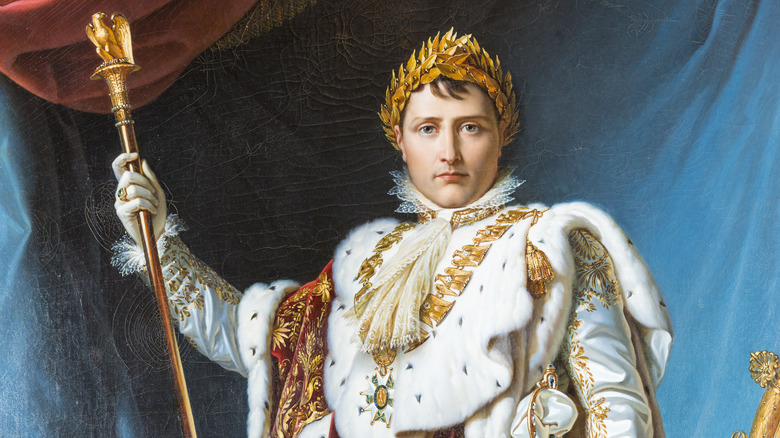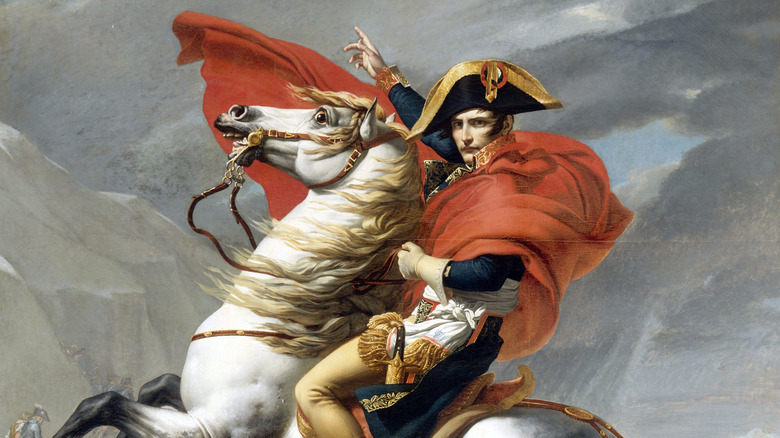The Last Meal Of Napoleon Bonaparte Was An Elegant Affair
Napoleon Bonaparte was not only an extremely victorious general of the French army, but also the emperor of France from 1804 to 1814 (and again briefly in 1815). While he accomplished many things over the course of his fairly short life, as well as many losses (one of which may be the reason for the existence of the Beef Wellington), he was ultimately exiled to the island of St. Helena after surrendering to Britain in 1815. He died on this island in 1821 after losing his final battle to stomach cancer (although the true reason for his death is still debated today), but not before chowing down on an exquisite meal fit for a king — or, in this case, an emperor.
According to Andrew Caldwell's book "Their Last Suppers: Legends of History and Their Final Meals," Bonaparte devoured a breakfast of liver and bacon chops, sautéed kidneys, shirred eggs, and garlic toast topped with tomatoes. While these dishes may seem like odd choices to non-French people, this breakfast is actually very representative of the French region. Sautéed kidneys are a French delicacy, and while it is not known exactly what kind of kidneys he chose to eat that day, it is very likely that it was either lamb or veal based on common French cuisine.
Bonaparte's final meal
What makes Napoleon Bonaparte's final meal so interesting is that many accounts, specifically by his Valet, Louis-Étienne Saint-Denis, state that he often enjoyed simple and fast meals. According to Saint-Denis, Bonaparte enjoyed very hot soup and boiled beef. He wasn't a huge fan of larger meals, and allegedly never had more than two plates at the table at once for breakfast. Dinner was similar, as he still strayed away from complicated dishes and stuck to simpler foods. He also was known to skip meals frequently. Despite the fact that he was technically a prisoner of war on St. Helena, he was still cooked great meals every day.
After demolishing this large meal, Bonaparte quickly fell ill due to his cancer and did not consume much food before succumbing to his illness in May of 1821. While he was still able to eat some jelly and drink some broth in his final days, many consider his large French breakfast as his true final meal.

